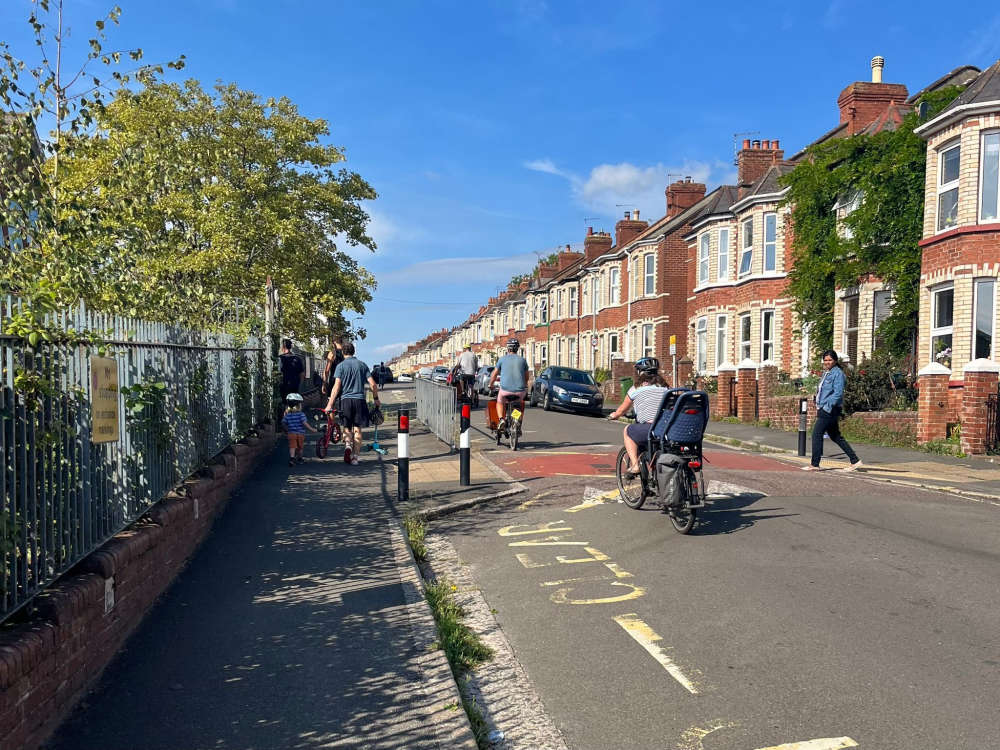Councillors divided on whether to scrap the scheme or let it run its course.
The problem with the Exeter Low Traffic Neighbourhood scheme has been that it cannot be seen to be penalising those communities most at risk from the harms of air pollution.
And many in the community feel they are being penalised – to the extent that there have been campaigns to scrap the trial LTN in Heavitree completely – meaning that the county council could suspend the controversial scheme – or even that the controversial Exeter travel scheme could be abandoned.
The council met yesterday to consider this – Agenda for Exeter Highways and Traffic Orders Committee on Tuesday, 23rd January, 2024, 2.15 pm – Democracy in Devon
And the media has reported the results with the BBC announcing that Exeter’s controversial traffic scheme survives a bid to scrap it; and Devon Live reporting a stay of execution for Exeter’s low-traffic scheme:
Exeter’s controversial active streets traffic scheme has survived attempts to get it scrapped. A report to the Devon County Council committee which set up the trial in Heavitree and Whipton suggested it could be axed because it was not meeting its targets. Thousands of people signed petitions against it, but members of the Highways and Traffic Orders Committee gave it a reprieve and said they needed more information before making a final decision.
The report said the scheme is only performing well in two out of its 10 target measures, with better conditions for walkers and cyclists inside the trial area. But while traffic had increased on some boundary roads and some journeys by car and bus are taking longer, the results so far are inconclusive on other measures.
The trial is designed to cut pollution and make the streets safer, and supporters say local families enjoy the quieter streets. Opponents say traffic is just being driven onto other roads around the area, and emergency services are being delayed. Councillors were divided on whether to scrap the scheme or let it run its course.

Interestingly, we also learnt that Olympic cycling gold medallist Chris Boardman warned Exeter of a potential funding cut if it had failed to stand by its controversial low-traffic scheme trial:
“Councils who have committed communities as well as public money to conduct meaningful trials should think long and hard about abandoning them early. Not only does this break faith with local communities who supported the trial, it damages trust in the local authorities and makes it very difficult to trial future changes. In addition, as is outlined in guidance, if funded trials are removed early without very compelling evidence, this may well affect future funding applications.”
Professor Richard Betts, chair in climate impacts at the University of Exeter also backed the trial, saying it provided “a crucial opportunity to test a potentially important contribution to tackling climate change.”